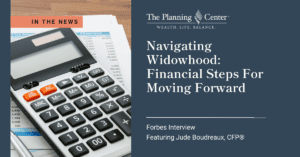[This post is part of the Financial Rules of Thumb series. Check out the rest here!]
It’s not uncommon to hear statements like “Renting is throwing your money away” or “A home is your best investment” but are those statements true? The decision of buying vs renting a home has many factors that should be explored.
The Upperline: There are lots of reasons to rent rather than buy. Buying can be a great deal, but only if you plan to stay in the home for quite a while.
Like most financial decisions, this one isn’t really about the money. It’s more about personal preferences like:
- How long do you plan to live in this home? (If less than 5 years, it’s hard to overcome the initial costs of purchasing and early years of financing)
- How do you feel about renting? Do you feel like you’re wasting your money? Do you feel like you need to be able to make permanent changes to the structure or yard?
- How do you feel about borrowing a large sum of money? How do you feel about debt in general?
- Is stability, knowing that you’ll be in once place for a long stretch, important to you?
Now that you’ve checked in with your feelings, here’s a short list of factors you should weigh when considering buying vs renting a home:
- Costs of buying and selling – There are several expenses that happen with most home sales and purchases. There are Filing fees (with the banks and local governments), Real Estate Commissions, Title fees, Appraisal Fees, etc. All of these costs take a bite out of the proceeds of the sale (or add on to the purchase price if you’re the buyer).
- Financing costs – Most homes in the US are purchased with a traditional 30 year mortgage. If we assume a $200,000 mortgage and a 5% interest rate, at the end of 5 years you would have paid just over $16,000 in principal and $48,000 in interest.
- Taxes & Insurance – Typically, the cost of renting is lower than the cost of owning a similar home. That’s partially due to insurance (renter’s insurance is less expensive than homeowner’s insurance) and property taxes. Be sure you get a good estimate of the annual property tax bill you’ll need to pay in your new home, and account for that on a monthly basis.
- Maintenance – This is the hidden cost of home ownership. Cleaning the gutters, painting the house, and cutting the grass are just a few of the things you’re responsible for as a homeowner. There’s a financial cost, as well as a time cost to taking care of these chores.
- Lack of flexibility – This is another hidden cost of ownership. Once you buy, you’re locked in, and your money is locked in. Banks are requiring higher down payments than in recent years (which is probably a good thing) but that also means you’ll have to save a healthy sum, and then see that money get swapped for equity in your home limiting your access to it.
Home ownership can still be a great deal, but the math isn’t as clear these days as it has been in the past. Be sure to have some good conversations about what your home means to you, run the numbers, and make the best decision you can.
I hope this is helpful! Please let me know if you have any follow-up questions or tips for things I left out in the comments below.





